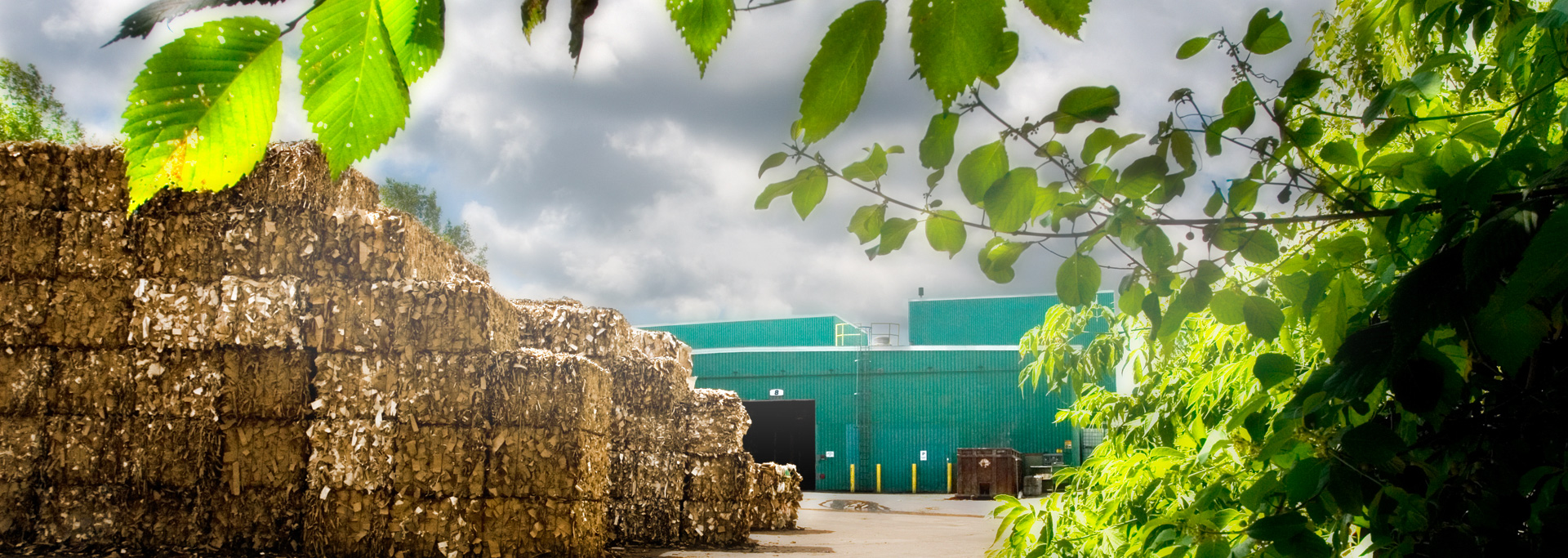
Extended Producer Responsibility (EPR):
a better way to manage waste
Adapting to changing consumption habits and meeting new company offerings brings challenges, especially with the increase in packaging waste. Traditionally, municipalities have managed this waste through collection and sorting contracts. However, Extended Producer Responsibility (EPR) shifts the responsibility for a product’s end-of-life from citizens to producers, making them accountable for the packaging they put on the market.
EPR is a provincial/state law, meaning the regulations can vary significantly from one jurisdiction to another. However, they can generally be categorized into two models: financial EPR and operational EPR:
- In the financial model, municipalities handle recyclables, and companies reimburse recovery costs through ecofees.
- The operational model requires companies to oversee the entire lifecycle of their products, including contracts, costs, and performance targets.
Both models use ecofees to incentivize producers to use more environmentally friendly products by enhancing recyclability or reducing packaging.
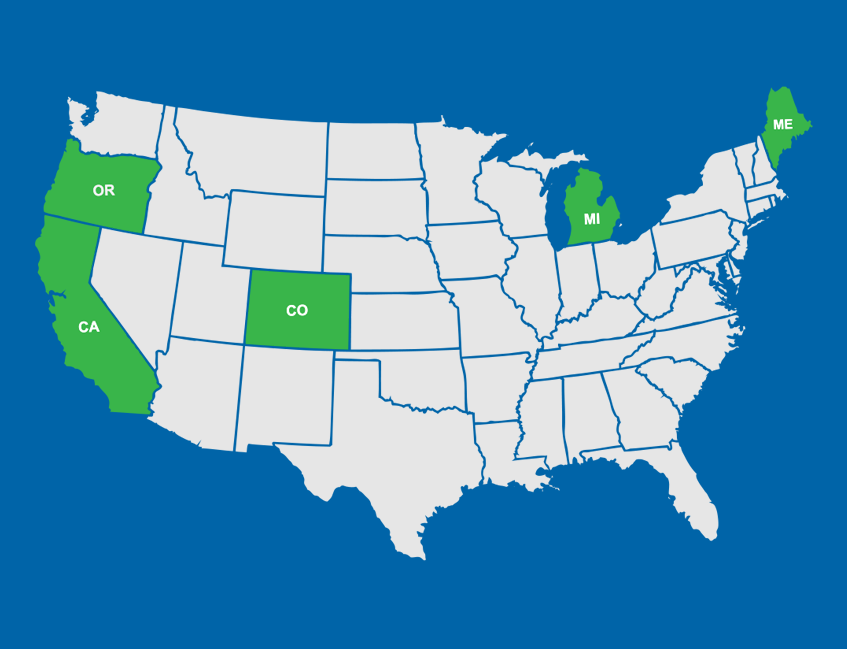
Implementation
EPR programs for packaging are rapidly expanding across the United States, with several states already passing bills and many others introducing them.
Period until full or partial implementation of EPR:
California: 2024–2027
Colorado: 2023–2026
Maine: 2025–2026
Oregon: 2024–2025
Minnesota: 2025–2029
The principle of EPR has long been applied in North America, especially for the products beyond containers and packaging, including:
- Household and air-conditioning appliances
- Pressurized gas containers
- Oils, antifreeze, coolants, and their containers and filters
- Mercury lamps
- Paints and their containers
- Batteries and cells
- Mattresses
- Electronic products
- Pharmaceutical products

Ecofees:
Taxes, contributions, or financing
How do they operate?
Ecofees are costs charged to companies for the end-of-life management of their products that they put on the market, covering collection and sorting. These fees, based on packaging weight and material type, vary by province. Producers are obligated to pay these fees in each province where their products are sold.
Fibre: a top material from start to finish
Who better than Cascades, ranked among the world's most responsible companies1, to support you in your transition to EPR? Thanks to our vertical integration, the various teams at Cascades have been dealing with financial and operational EPR for many years, whether for collection, sorting, recycling, or packaging manufacturing. These decades of experience and innovation enable us to offer sustainable packaging solutions tailored to the requirements of EPR and the various recycling markets.
Our key material?
One of our key material is fibre, which offers all the advantages that EPR companies need:
- Lower ecofees compared to other materials.
- Fibre is a widely recognized material with an established recycling system: consumers understand how to properly dispose of paper and cardboard, supported by decades of existing recycling infrastructure.
EPR and the food industry
Cascades offers innovative and recyclable food packaging solutions that can help brand owners reduce their ecofees. Our fiber and rPET food trays, designed for fruits, vegetables, and fresh meat, provide numerous advantages. These eco-designed packaging options are made from 100% recycled materials, reducing waste and lowering carbon footprints. They cater to the growing consumer demand for sustainable products, enhancing brand reputation and aligning with regulatory trends. Additionally, our food trays are durable, performant, and can improve product visibility, contributing to better presentation and market appeal.
Our eco-design commitment
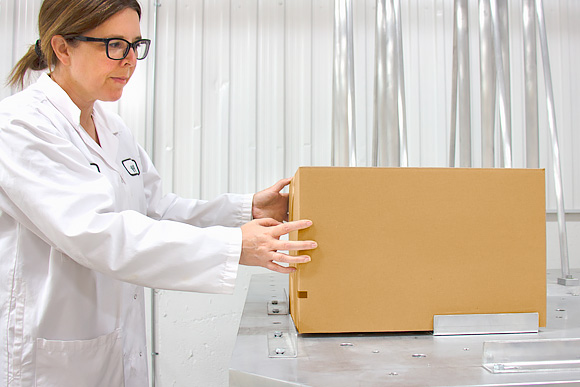
Cascades has a team of over 70 designers dedicated to creating sustainable packaging from the outset.
Here's how we accomplish this:
- By minimizing the number of components and materials, reducing packaging weight and volume, and eliminating unnecessary packaing.
- By selecting recyclable materials like fibre and avoiding elements that impede recyclability, such as wax and lamination.
- By optimizing packaging logistics and the reuse chain.
What does this mean for you?
- It translates to lower eco-costs and better end-of-life management for your products!
Innovating to meet Your needs
Innovation at Cascades stems from our R&D efforts to replace hard-to-recycle plastic packaging with sustainable options. By promoting monomaterials, we simplify recycling and address environmental concerns.
Supporting your sustainability goals
In addition to supplying eco-designed packaging, Cascades offers you personalized support. When you consult our experts, you'll know exactly what's going on with your packaging and receive advice tailored to your practices and your desire for sustainability.
Together, we combine profitability with sustainability!
In a world where environmental responsibility is becoming increasingly important, companies like Cascades play an essential role in promoting sustainability. By providing innovative, recyclable, and eco-designed packaging, we make a tangible impact on protecting our resources. More than ever, sustainability and profitability go hand in hand in the packaging industry.
A total commitment to Cascades Recovery+.
Our approach goes beyond managing residual materials to include:
- Strategizing to increase recycling rates and reduce waste management costs.
- Developing custom solutions.
- Providing ongoing support for your sustainability goals.
Related products
100% recycled PET
rolled edge trays
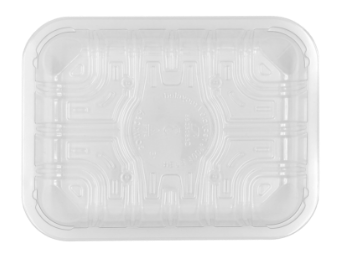
68% less impact
on greenhouse gas emissions than virgin foam2
Recyclable*
Designed for Proteins, Fruits and vegetables
![]()
100% recycled fibres
cardboard trays
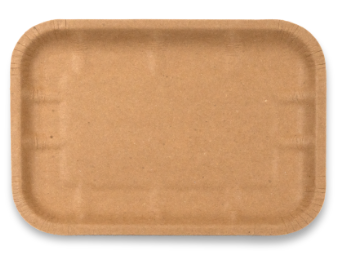
33% less impact
on greenhouse gas emissions than virgin foam3
Recyclable* and/or compostable**
Designed for Proteins, Fruits and vegetables
![]()
Want to find out more about our eco-designed food trays?
* Where the appropriate infrastructures are in place. In the United States, the tray may not be recyclable in some areas. Please check with your municipality.
** This product is suitable for industrial and municipal composting facilities, not for home composting, depending on the coating.
2 : CASCADES Life Cycle Assessment (LCA), AGECO Group; July 2024 Scenario : 1,000,000 competition virgin foam trays replaced by 1,000,000 Cascades 100% recycled PET trays, same format #3.
3 : CASCADES Life Cycle Assessment (LCA), AGECO Group; July 2024 Scenario : Scenario : 1,000,000 competition virgin foam trays replaced by 1,000,000 Cascades 100% recycled cardboard trays with moisture barrier, same format #3.

